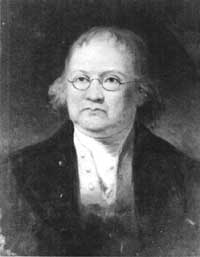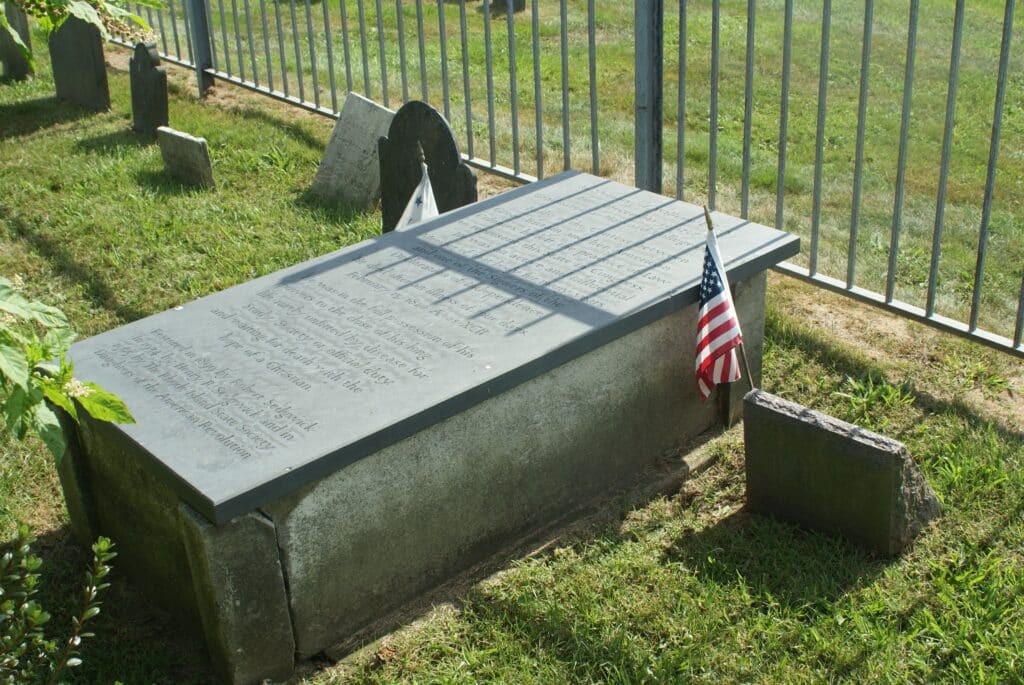William Ellery was born in Newport, Rhode Island, on December 2, 1727. Ellery was one of the last surviving Signers of the Declaration of Independence. He was born to his father of the same name and Elizabeth Almy. His father would give him his early education. He was himself a class of 1722 Harvard graduate, a successful merchant, lieutenant governor, judge, and senator.
He graduated from Harvard, where he excelled in Greek and Latin at the age of 20, and married his first wife, Ann Remington, in 1750. After 14 years of marriage, Ann died in Cambridge. Ellery remarried 3 years later to Abigail Cary.

William Ellery, like his father, was a man of many vocations. He served in the Rhode Island Navy as a clerk in the Rhode Island General Assembly. He began practicing law when he was 43, a successful merchant, and a political activist in the Rhode Island Sons of Liberty.
He was a man known for his hard work ethic, religious conviction, and intelligence. He would become a delegate to the Continental Congress after Samuel Ward died in 1776. He and Stephen Hopkins represented Rhode Island during the Second Continental Congress and signed their names to the treasonous Declaration of Independence.
Throughout the war, Ellery served the country diligently and suffered the loss of his home when it was razed by General Piggot after he took control of Newport during the American Revolutionary War.
He remained a delegate to Congress until 1785 when he retired to his home state of Rhode Island. Soon after his retirement, he was elected by Congress to be the commissioner of the Continental Loan Office and chief justice of their supreme court, which he would not keep long.
Upon the formation of the federal government, President George Washington appointed him collector of the customs of the town of Newport. He would hold this position until his death in 1820.
William Ellery died at the age of 92 on February 15, 1820. Charles Goodrich, author of Lives Of The Signers Of The Declaration Of Independence, says it best:
On the 15th of February, 1820, this venerable man, venerable for his age, which had been prolonged to ninety-two years, and venerable for the services which he had tendered his country, was summoned to his account. His death was in unison with his life. He wasted gradually and almost imperceptibly until the powers of nature were literally worn out by use. On the day on which his death occurred, he had risen, as usual, and rested in his old flag-bottomed chair, the relict of half a century; he had employed himself in reading Tully's offices in Latin.

